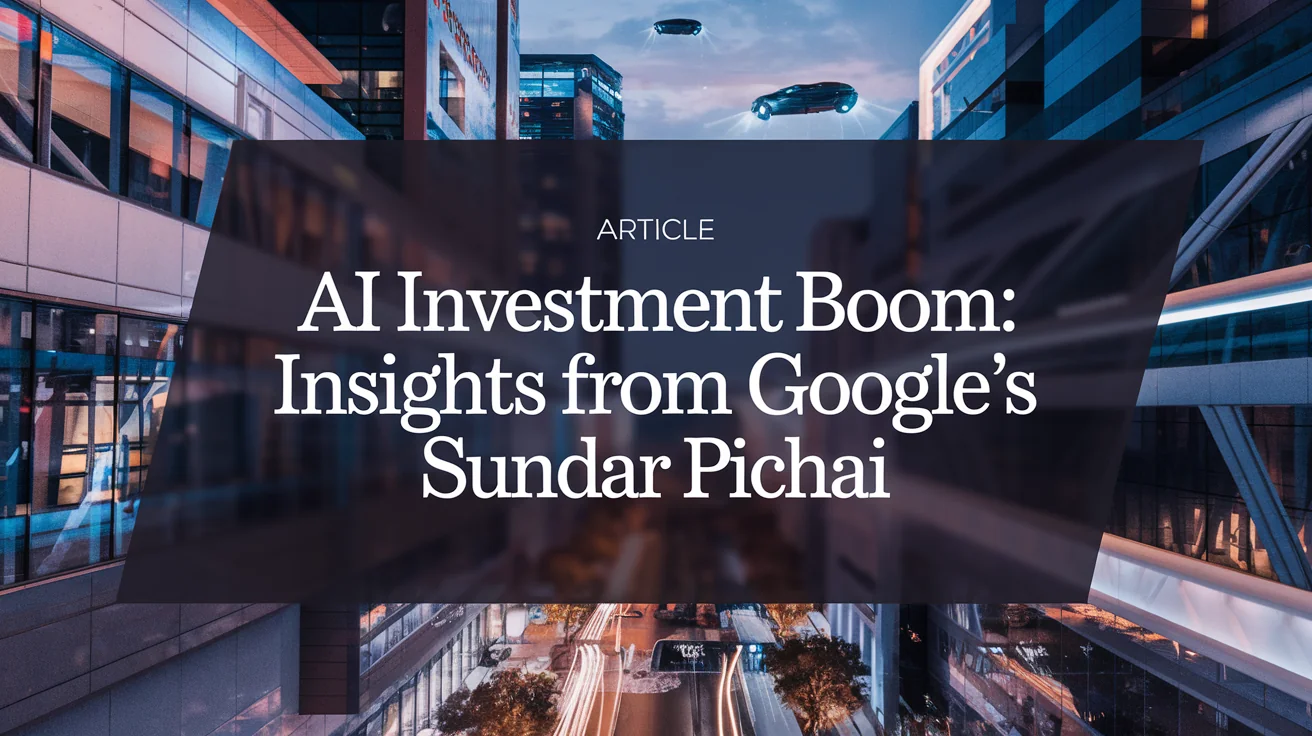AI Investment Boom: Insights from Google’s Sundar Pichai

The trillion-dollar AI investment boom has drawn significant attention, prompting comments from Sundar Pichai, CEO of Google’s parent company, Alphabet. In an exclusive interview with BBC News, Pichai expressed a duality of optimism and caution regarding the current state of artificial intelligence (AI) investments, identifying elements of both extraordinary potential and irrational exuberance.
Concerns Over Market Sustainability
Pichai emphasized that no company, including Google, is immune to the risks associated with what some refer to as the AI bubble. This concern arises amidst rising fears in Silicon Valley of a potential market collapse similar to the dot-com crash of the late 1990s. Analysts have pointed out that while shares of AI-related companies have surged—Alphabet’s market capitalization doubling to approximately $3.5 trillion—doubt remains prevalent regarding the sustainability of such valuations.
Investment Strategies and Comparisons
During the interview, Pichai referenced the significant investments flowing into AI, including a complicated web of $1.4 trillion linked to OpenAI. This situation reflects a level of optimism that may mirror past technology investment surges, leading to concerns of ‘irrationality’ akin to the warnings of “irrational exuberance” by former Federal Reserve Chairman Alan Greenspan. Despite these warnings, Pichai remains clear that the fundamental advancements in AI technology will prove essential in the long run.
Google’s Unique Position in AI Development
Highlighting Google’s integrated technological capabilities—or having a “full stack”—from superchips to AI models, Pichai believes the company is well-positioned to navigate potential market fluctuations. Furthermore, he noted Google’s commitment to investing approximately £5 billion in the UK for AI infrastructure over the next two years, signaling a significant push for research and development in the region.
Societal and Environmental Considerations
Aside from economic factors, the CEO also touched upon the environmental impact of AI, acknowledging the sector’s sizeable energy consumption—accounting for 1.5% of the world’s electricity. He underscored the immediate need for advancements in energy sources and infrastructure to sustain AI growth without hindering progress in other societal areas.
The Changing Workforce Landscape
Pichai asserted that AI would reshape our workforce, enabling certain job transformations while creating new opportunities. He emphasized the importance of adaptation, noting that individuals equipped to leverage AI tools will fare better in their professions, reiterating AI’s status as a profound technology capable of changing society dynamically.